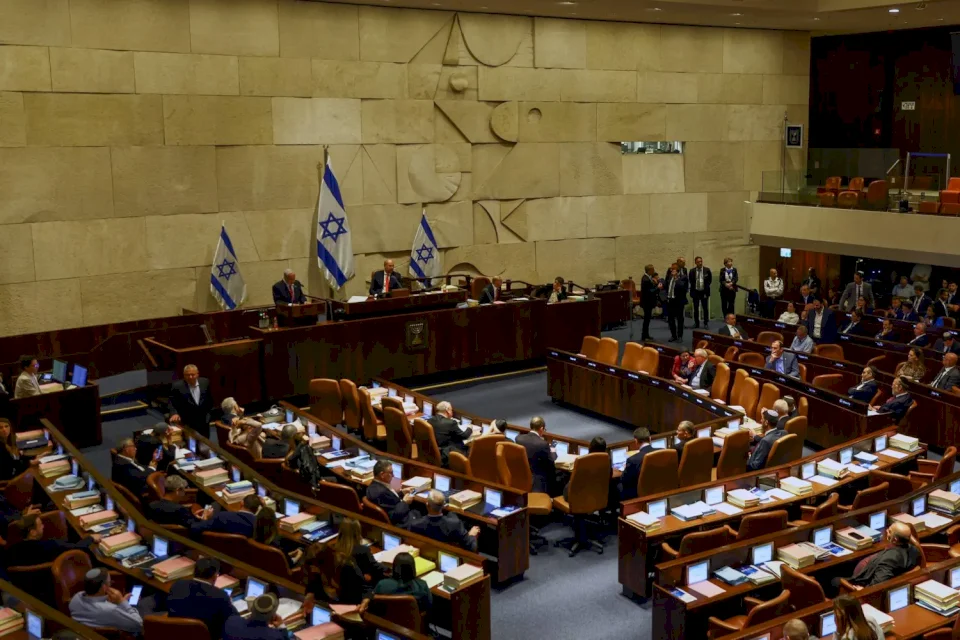
A Knesset Committee Discusses Today the "Law of Executing Prisoners" in Preparation for the First Reading Vote
Sada News - Today, Monday, the "Security" Committee in the Israeli Knesset will discuss the "Law of Executing Prisoners" in preparation for a vote on it next Wednesday.
A parliamentary committee affiliated with the Knesset approved on Sunday, September 29, the draft law regarding the "Execution of Palestinian Prisoners," in preparation for the first reading vote.
The law is considered part of the agreements signed to finalize the coalition government led by Likud Party Chairman Benjamin Netanyahu and the head of "Jewish Power," Itamar Ben Gvir, at the end of 2022.
The draft law for the execution of prisoners is not new; it has been proposed several times over the past years, most recently in 2022 when the extremist minister Ben Gvir reintroduced it with a series of amendments, resulting in its approval by the Knesset in a preliminary reading in March 2023.
The draft law stipulates "the death penalty for anyone who intentionally or due to indifference causes the death of an Israeli citizen out of racial motivation or hatred and to harm Israel."
Passing the law in the first reading will allow it to continue being pushed in the upcoming Knesset, even if its legislation is not completed during the current session.
The legislation process in Israel goes through several stages, starting with the formulation of a bill proposal by a Knesset member or a government committee, as outlined on the Knesset website.
In a special meeting, the Knesset presidency approves the legal proposals it receives and presents them the same day to the general assembly of the Knesset for preliminary reading approval, where they are discussed, and it is decided whether to approve them or not. They are then passed to a parliamentary committee that discusses the proposal to prepare it for the first reading.
If the proposed laws are submitted by the government and not by a member of the Knesset, as is the case with the death penalty law, or by Knesset committees, they are not subject to preliminary discussions and start from the first reading. The bills are published for the first reading in an official bulletin, followed by a vote to drop the laws or subject them to deliberation.
If the proposal passes approval in the first reading, it is forwarded to a specialized committee in the Knesset for preparation for the second and third readings, and after the committee concludes its deliberations, the laws are subjected to additional discussions in the general assembly, followed by voting in the second and third readings.
After the proposal is approved in the three readings, it becomes part of the book of laws of the State of Israel and is published in the "records" after its official drafting and becomes effective.
The push to approve this extremist law comes amid the genocidal war launched by the Israeli occupation against our people in the Gaza Strip and the West Bank since October 7.

American Writer Warns: Overthrowing the Iranian Regime May Open Unexpected Doors

Death of a Woman Inside a Home in Yatta.. Police and Prosecution Investigate

Occupation continues to close the doors of Al-Aqsa Mosque for the fourth day

For the Second Day: The Occupation Continues Its Aggression on Askar Camp East of Nablus

Israeli Army: We killed Reza Khazaei, an official in the Quds Brigade, in an airstrike on...

Martyr Shot by Occupation Forces in Khan Younis

Katz: We approved enabling the army to control additional strategic areas inside Lebanon

